★★★
“Miss-nority report”
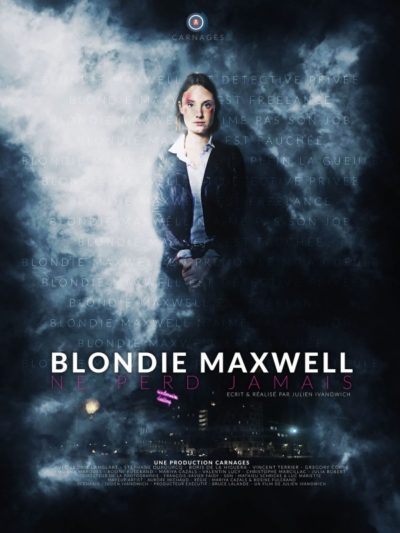 This French film takes place a little way into the future, though society has undergone radical changes. Law enforcement is now privatized, with investigations contracted out to private investigators, who have to balance their costs in order to turn a profit on the cases they accept. One such PI is Blondie Maxwell (Langlart) – and to get the obvious out of the way first, no, she is not blonde It’s mentioned once, but never explained. She is currently on the trail of the terrorist Boloch, who has been mounting a campaign against Chronos Industry, the all-encompassing tech company, which is invested in almost every area of everyday life. The reward would go a long way to solving her perilous financial situation.
This French film takes place a little way into the future, though society has undergone radical changes. Law enforcement is now privatized, with investigations contracted out to private investigators, who have to balance their costs in order to turn a profit on the cases they accept. One such PI is Blondie Maxwell (Langlart) – and to get the obvious out of the way first, no, she is not blonde It’s mentioned once, but never explained. She is currently on the trail of the terrorist Boloch, who has been mounting a campaign against Chronos Industry, the all-encompassing tech company, which is invested in almost every area of everyday life. The reward would go a long way to solving her perilous financial situation.
She gets a case to investigate the murder of an escort. It seems an open-and-shut case with the evidence squarely pointing at a journalist. However, something doesn’t sit right with Blondie, and the more she picks at the crime, the more it seems a set-up job. Even her getting the case seems suspicious, since authorities know she doesn’t have the resources to investigate it properly. The journalist claims the victim was actually his source, who was going to blow the lid of Chronos, not least a “dark” area of their network where murder for hire is bought and sold. Is he telling the truth, and what does this have to do with Boloch and his campaign?
As the tag-line above implies, this bears a significant resemblance to Stephen Spielberg’s Minority Report, with its tale of law and order run by technology. which someone on the inside gradually comes to realize isn’t as idyllic as it seems. This is rather less nuanced. At one point, a colleague of Blondie says, “Our job is to make the world safer. If that means sacrificing a little liberty, it works for me. It works for us all. It’s a choice we make as a society.” However, it’s clear Ivanowich’s sympathies are more aligned with Benjamin Franklin. This is very much a pre-liberty screed, though credit for being at least somewhat ahead of the curve with its concerns about artificial intelligence, an issue of increasing scrutiny in 2023.
Unlike Minority Report, it doesn’t have the budget to create a fully-fledged future society. This one looks like ours in almost every way, just with a few added bits of gadgetry, such as displays embedded into contact lenses. Maxwell’s main trait is her dogged determination to find out the truth, regardless of the personal cost, and she makes for an admirable heroine. As played by Langlart, she’s down to earth, though there were points where it seemed like the script had all but forgotten about Blondie. Either Ivanowich fell too much in love with the setting. or the story might have benefited from fewer characters and a sharper focus. Definitely not terrible though, and a good example of what can be done with imagination instead of budget.
Dir: Julien Ivanowich
Star: Léonie Langlart, Stéphane Dufourcq, Vincent Terrier, Boris de la Higuera





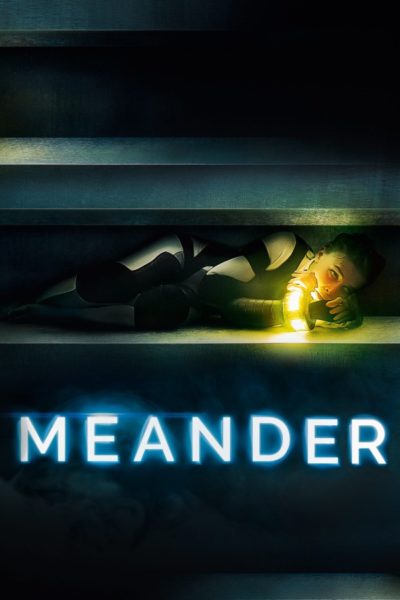 I guess, if you want to watch a woman crawling along a series of ducts for an hour and a half, this is the film for you. I’m afraid it’s just not a particular fetish I share, so the appeal of this is largely lost to me. Lisa (Weiss) lost her daughter in a tragic accident and has been plagued by guilt ever since. She wants to end it all, and to that end, is lying in the middle of the road, when she is convinced to accept a lift from passing drive, Adam (Franzén). Except, he turns out to be a roaming serial killer, who knocks her out. This is where it gets weird, since she recovers consciousness to find herself in a twisty little maze of passages, all alike.
I guess, if you want to watch a woman crawling along a series of ducts for an hour and a half, this is the film for you. I’m afraid it’s just not a particular fetish I share, so the appeal of this is largely lost to me. Lisa (Weiss) lost her daughter in a tragic accident and has been plagued by guilt ever since. She wants to end it all, and to that end, is lying in the middle of the road, when she is convinced to accept a lift from passing drive, Adam (Franzén). Except, he turns out to be a roaming serial killer, who knocks her out. This is where it gets weird, since she recovers consciousness to find herself in a twisty little maze of passages, all alike. For a TV movie, this is very impressive. When you hear that phrase, I usually think of something which appears on Lifetime or, worse still, Hallmark. But it seems that Thai television is made of sterner stuff. This plays much tougher, more like something you might see on AMC or FX. The story may not be particularly original, but it’s done with enough style and energy to make for more than passable entertainment The heroine is Angie (Rittapinun), an orphan who was brought up by her uncle and trained as an assassin. Her latest mission involves the retrieval of a data chip which contains a list of all the members in the organization of which she’s part. In the wrong hands, it could be disastrous.
For a TV movie, this is very impressive. When you hear that phrase, I usually think of something which appears on Lifetime or, worse still, Hallmark. But it seems that Thai television is made of sterner stuff. This plays much tougher, more like something you might see on AMC or FX. The story may not be particularly original, but it’s done with enough style and energy to make for more than passable entertainment The heroine is Angie (Rittapinun), an orphan who was brought up by her uncle and trained as an assassin. Her latest mission involves the retrieval of a data chip which contains a list of all the members in the organization of which she’s part. In the wrong hands, it could be disastrous.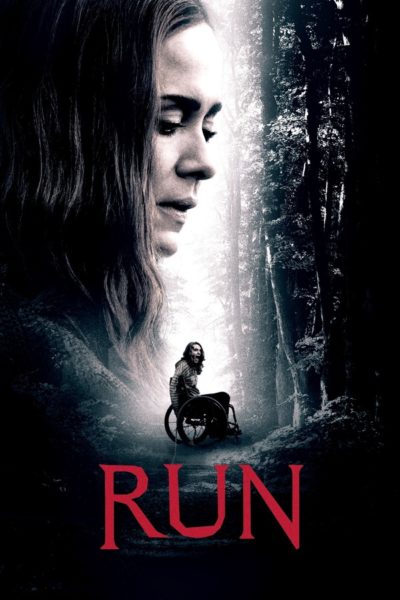 The title here is used ironically, because “run” is the last thing the heroine can do. She is Chloe Sherman (Allen), a teenage girl who has been plagued by medical issues since birth, requiring full-time care from her mother, Diane (Paulson). She’s partially paralyzed, unable to walk, and also suffers from severe asthma. Chloe is, however, awaiting the result of her college application, and is eagerly looking forward to starting a new, independent life, having been home-schooled by Mom, who is the very definition of a helicopter parent. One day, Chloe discovers some of her medication is in her mother’s name, and gradually discovers more evidence that something is very wrong with Diane. If her suspicions are right, the bigger question is, what can Chloe do about it?
The title here is used ironically, because “run” is the last thing the heroine can do. She is Chloe Sherman (Allen), a teenage girl who has been plagued by medical issues since birth, requiring full-time care from her mother, Diane (Paulson). She’s partially paralyzed, unable to walk, and also suffers from severe asthma. Chloe is, however, awaiting the result of her college application, and is eagerly looking forward to starting a new, independent life, having been home-schooled by Mom, who is the very definition of a helicopter parent. One day, Chloe discovers some of her medication is in her mother’s name, and gradually discovers more evidence that something is very wrong with Diane. If her suspicions are right, the bigger question is, what can Chloe do about it? Zombies and jail aren’t quite as new an idea as you might think. The Walking Dead had a major arc which took place at a prison, the facility’s fences now more useful for keeping things out than in. And back in 2005, The Asylum released the (surprisingly decent)
Zombies and jail aren’t quite as new an idea as you might think. The Walking Dead had a major arc which took place at a prison, the facility’s fences now more useful for keeping things out than in. And back in 2005, The Asylum released the (surprisingly decent) 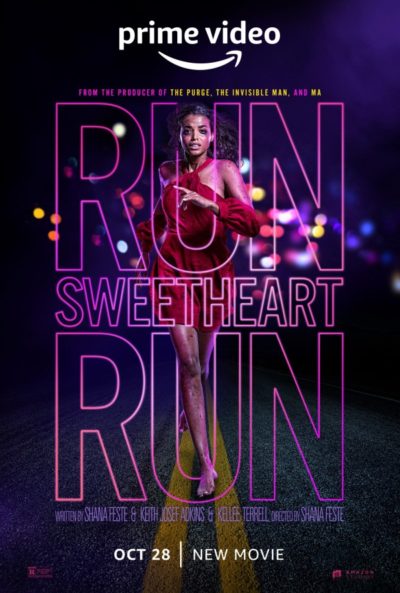 If I were Ella Balinska, I’d be having a word with my agent. After seeing her major Hollywood career begin with the embarrassing failure of the
If I were Ella Balinska, I’d be having a word with my agent. After seeing her major Hollywood career begin with the embarrassing failure of the 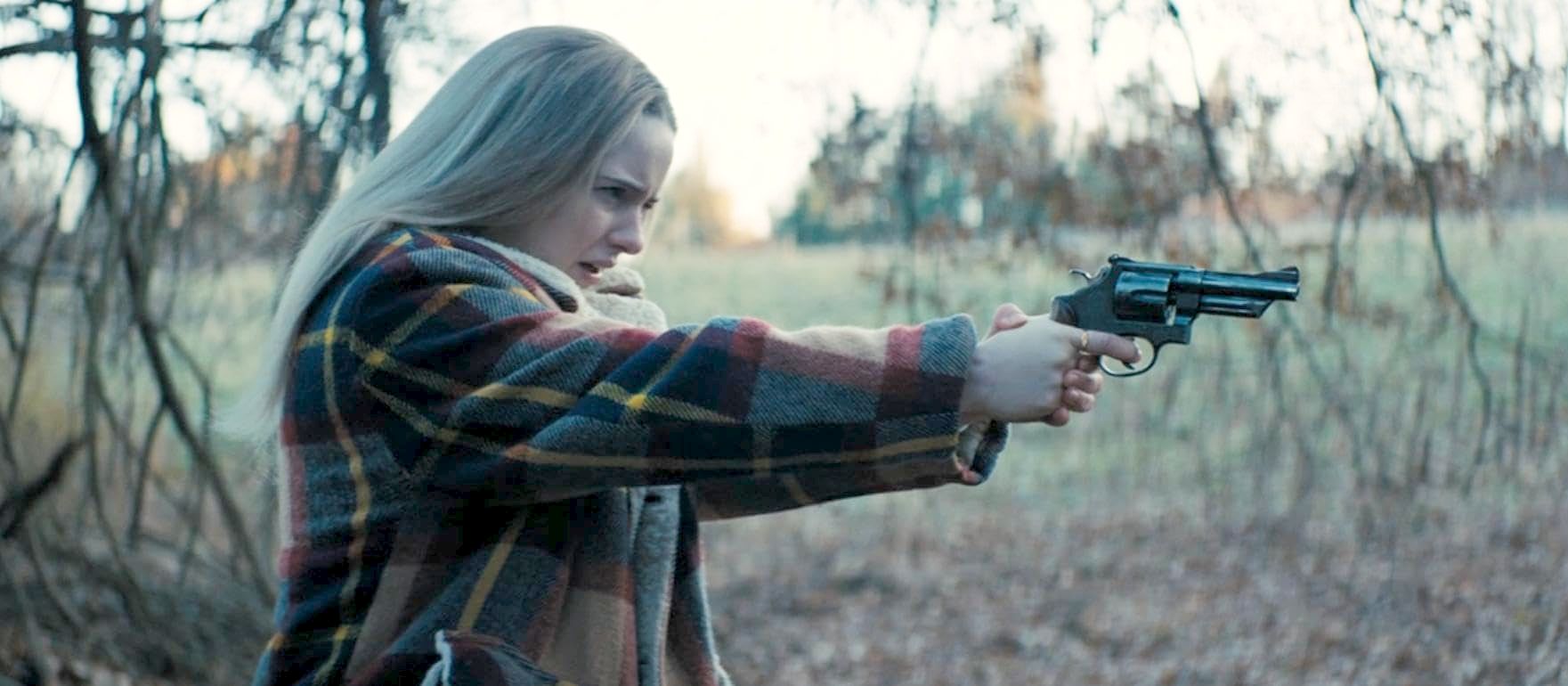 ★★★★
★★★★ Hearing that James Gunn, new head of the DC movie department at Warners, just recently announced David Corenswet and Rachel Brosnahan as the new actors to play Superman and Lois Lane in the next “Superman”-movie, I felt the need to find out more about these new actors. For Brosnahan I chose the movie I’m Your Woman, an Amazon Prime production from 2020. For one thing, she played the main role, and secondly a two-hour movie is much quicker to watch than a series like The Marvellous Mrs. Maisel. Sure, for that series she got two Golden Globes, one Emmy and two Screen Actors Guild Awards – but my time is a bit limited. Also, I prefer gangster movies over a dramedy show.
Hearing that James Gunn, new head of the DC movie department at Warners, just recently announced David Corenswet and Rachel Brosnahan as the new actors to play Superman and Lois Lane in the next “Superman”-movie, I felt the need to find out more about these new actors. For Brosnahan I chose the movie I’m Your Woman, an Amazon Prime production from 2020. For one thing, she played the main role, and secondly a two-hour movie is much quicker to watch than a series like The Marvellous Mrs. Maisel. Sure, for that series she got two Golden Globes, one Emmy and two Screen Actors Guild Awards – but my time is a bit limited. Also, I prefer gangster movies over a dramedy show. I think this makes it quite an unusual movie as – in contrast to many other movies – we are not immediately brought up to speed with an info-dump, so that we tie ourselves emotionally to Jean. As a result, the fear and tension she experiences are really palpable to us, too. We don’t know who Cal is and why he is helping her, or why people are after Jean. In my opinion, the movie is particularly successful in showing a female perspective, as part of something that would otherwise potentially have been just an ordinary gangster story. In the beginning, Jean does whatever she is told, while at the same time also trying her best to be a good mother to the little baby, even if her knowledge in this respect is also just rudimentary.
I think this makes it quite an unusual movie as – in contrast to many other movies – we are not immediately brought up to speed with an info-dump, so that we tie ourselves emotionally to Jean. As a result, the fear and tension she experiences are really palpable to us, too. We don’t know who Cal is and why he is helping her, or why people are after Jean. In my opinion, the movie is particularly successful in showing a female perspective, as part of something that would otherwise potentially have been just an ordinary gangster story. In the beginning, Jean does whatever she is told, while at the same time also trying her best to be a good mother to the little baby, even if her knowledge in this respect is also just rudimentary. This is definitely an interesting idea, and potentially the most meta action heroine film I’ve seen. Cha Yeon-hee (Ahn) has wanted to be a movie heroine ever since she was a child, though it’s an ambition which has always eluded her – in part because of her refusal to work her way up in the industry. She eventually and grudgingly accepts a stunt double position in a historical swordplay film, and shows up on the set for her first day. However, due to circumstances involving a magical clapperboard (hence the title) and an inconvenient portal, she finds herself transported to a parallel dimension. It’s kinda like modern Korea in clothes and speech, but run by warlords and their sword-carrying minions.
This is definitely an interesting idea, and potentially the most meta action heroine film I’ve seen. Cha Yeon-hee (Ahn) has wanted to be a movie heroine ever since she was a child, though it’s an ambition which has always eluded her – in part because of her refusal to work her way up in the industry. She eventually and grudgingly accepts a stunt double position in a historical swordplay film, and shows up on the set for her first day. However, due to circumstances involving a magical clapperboard (hence the title) and an inconvenient portal, she finds herself transported to a parallel dimension. It’s kinda like modern Korea in clothes and speech, but run by warlords and their sword-carrying minions.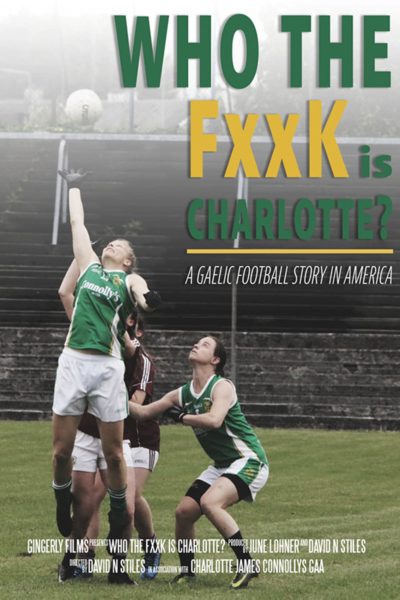 The Charlotte club was formed in 2000, and based on what we see here, is as much a social organization as a sports club. There does appear to be quite a lot of consumption of adult beverages. But there’s no doubt, they take the sport seriously, and recruit from all round the area, both Irish and American players. On North America, teams can bring in experienced players from Ireland, known as “sanctions”, to help grow the sport. But some clubs do that to excess: Charlotte refuse to go that route, putting their team at a potential disadvantage compared to Boston, or their arch-rivals from San Francisco, the Fog City Harps. The film follows Charlotte as they develop their team, and take part in the 2016 and 2017 senior women’s tournament, for the best sides in North America.
The Charlotte club was formed in 2000, and based on what we see here, is as much a social organization as a sports club. There does appear to be quite a lot of consumption of adult beverages. But there’s no doubt, they take the sport seriously, and recruit from all round the area, both Irish and American players. On North America, teams can bring in experienced players from Ireland, known as “sanctions”, to help grow the sport. But some clubs do that to excess: Charlotte refuse to go that route, putting their team at a potential disadvantage compared to Boston, or their arch-rivals from San Francisco, the Fog City Harps. The film follows Charlotte as they develop their team, and take part in the 2016 and 2017 senior women’s tournament, for the best sides in North America. 